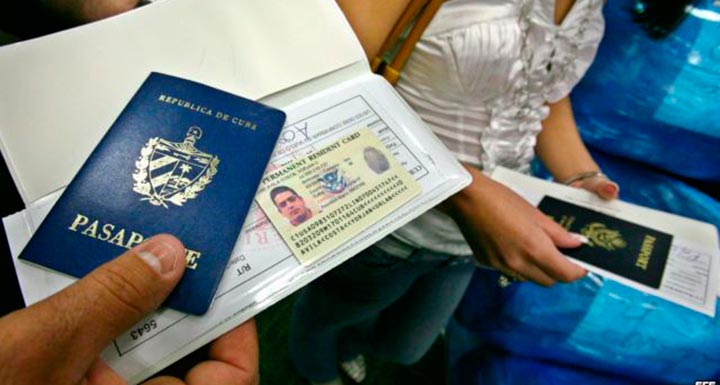
A Cuban passport for travel to Cuba is an unnecessary impediment
SEATTLE — Public opinion in the United States has welcomed with pleasure the news of the reestablishment of relations between the U.S. and Cuba. On the island, Cubans are expressing joy over what seems to be the beginning of a new era of relaxation between the two nations.
The U.S. Government is getting ready to amend or abolish many of the regulations created in the past, which were part of the policy of harassment designed for the island. These rules are still an obstacle for the normalization of ties between the two countries.
For its part, the government of Cuba should hasten to repeal archaic regulations that at present seem to make no practical or political sense.
One of the most frequent complaints about some of these regulations from members of the Cuban community in the United States deals with the existence of a requirement that says that native Cubans living abroad must obtain a Cuban passport to re-enter their homeland.
For Cuba, the requirement of such a passport is — in financial terms — counterproductive. While the country obtains some revenue from the bureaucratic paperwork required from those who are obligated to obtain that document, many U.S.-naturalized Cubans end up postponing a possible trip to the island (or deciding against it) because they don’t wish to deal with the complicated and expensive procedure.
Often, these people hold a U.S. passport and consider it unnecessary and excessive to have to obtain another travel document.
In financial terms, the obligatory need for the passport results in more disadvantages than benefits for Cuba, because it severely limits the visits of Cuban-born citizens to their homeland — and therefore the acquisition of hard currency from the travelers.
In Miami and other U.S. cities, Cuban natives often state that, were it not for the requirement of a Cuban passport, they would visit the island more frequently if they could use the U.S. passport they already hold.
The abolition of this requirement by Cuba would also be a fraternal and compassionate gesture toward those Cubans who live outside their native land.
Many of these émigrés are retired folks in the twilight of their lives who live on limited resources. They are unable to visit their homeland partly because of the difficult procedure to obtain the passport and the excessive price they must pay for the service.
Abolishing this requirement would be a humanitarian gesture and would have a positive effect on the relation between the nation and its émigrés. To eliminate this requirement could also have political repercussions in the United States.
According to surveys and the media, most of the Cubans who have emigrated to the U.S. in the past three decades favor the normalization of relations between the two countries. These people have no objection to return to Cuba as visitors once they obtain legal residence in the United States.
These émigrés generally espouse progressive points of view, counter to those of the hard-line Cubans who left the island in the 1960s. Today, tens of thousands of these recently-arrived Cubans are postponing, for one reason or another, the process of becoming U.S. citizens.
However, the possibility of traveling to Cuba expeditiously, with a U.S. passport, could be an incentive for thousands of these legal residents to become U.S. citizens.
Thus, these new citizens, at the time they vote in local or federal elections, would do so thinking about their interests and those of their families. In other words, they would vote for and elect representatives whose political agenda included the improvement of relations between Cuba and the U.S.
In conclusion, if the Cuban government allowed Cuban-Americans to travel to Cuba with a U.S. passport it would be promoting a human, intelligent and effective strategy toward its émigrés.
In addition, it would empower with greater political force a majority, moderate sector of its émigrés. In turn, these factors would have an exponential repercussion in the climate of improvement in the relations between the U.S. and Cuba and between the Cuban émigrés and their nation.
Carlos Lazo is a schoolteacher in the Seattle, Wash., area. During the Bush Jr. presidency, he became well known as the Cuban-American combat medic who served with distinction in Iraq but was barred from visiting his children in Cuba due to the restrictions on travel that the Bush administration was using to stop Cuban-Americans from visiting their families in Cuba.

